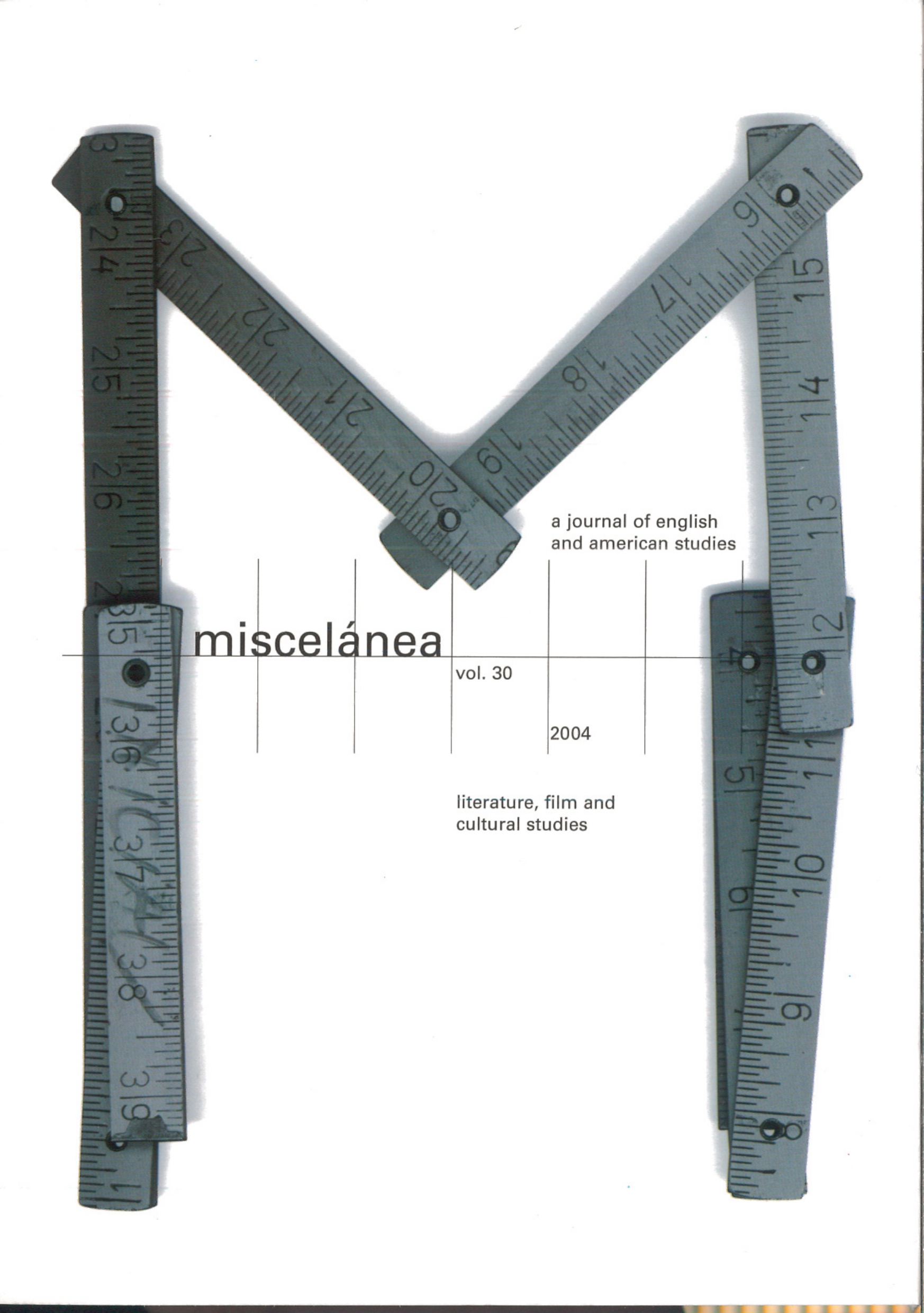Europa in Wonderland: Gobling Market or Sappho's Gymnasium
DOI:
https://doi.org/10.26754/ojs_misc/mj.200410128Palabras clave:
Educación, Eros, Grecia, Pregunta, UniversidadResumen
Europa, la "madrina" de Europa, actúa como anfitriona e "instructora" en el viaje diacrónico sobre el paisaje pedagógico europeo que se intenta en esta presentación, iniciándonos en una aventura en el país de las maravillas educativo que comienza en el topos de su país "adoptivo": Grecia. Partiendo de la base de que para los griegos la educación se basaba en una relación profunda entre dos personas, una joven y otra madura, que era a la vez modelo, guía e iniciador, y que además adoptaba un culto a las Musas que buscaban la sabiduría a través de un enfoque estético y "erótico" de la vida, Safo y Sócrates se presentan como paradigmas del sistema griego de escolarización. Los sofistas, "adversarios" educativos de Sócrates, son vistos como los fundadores del utilitarismo, precursores del moderno mercantilismo de la educación.
Se utiliza el poema de Christina Rossetti Mercado de duendes (por su título de múltiples capas que sugiere el triunfo de una moral de "mercancía") como puente para llevarnos a la condición actual de la universidad europea. Siguiendo los pasos que han llevado a la formación del Espacio Europeo de Educación Superior, la presentación pone de relieve la transformación gradual de la educación de un "bien" público a un "producto" comercializable. Atendiendo a las voces disidentes (expresadas por miembros de la ESSE) y situando todo el problema en un contexto filosófico más amplio, podemos oír un eco socrático en Heidegger, Gadamer y Derrida, que profesan la actitud "cuestionadora" como única forma de conocimiento. Con la esperanza de que la "memoria" pueda revelar señales olvidadas del pasado que nos guíen a través de la escisión esquizoide que atormenta a la academia actual, volvemos con Olga Broumas al "Gimnasio de Safo", no sea que la presencia "maternal" pueda dar/ser la respuesta.
Descargas
Citas
BARKAN, Leonard. 1986. The Gods Made Flesh: Metamorphosis and the Pursuit of Paganism. New Haven and London: Yale U. P.
BEAUVOIR, Simone de. 1960. The Second Sex. London: New English Library.
BOITANI, Piero. 1994. “The ECU”. The European English Messenger 3 (1) (Spring 1994): 55-59.
BONHEIM, Helmut. 1998. “The President’s Column”. The European English Messenger 7 (2) (Autumn 1998): 4-5.
BROUMAS, Olga. 1999. Rave: Poems 1975-1999. Port Townsend: Copper Canyon Press.
CARROLL, Lewis. 1946. Alice’s Adventures in Wonderland & Through the Looking Glass. Harmondsworth: Puffin Books.
CASTLEDEN, Rodney. 1990. Minoans: Life in Bronze Age Crete. London and New York: Routledge.
CLARK, Robert. 2003. “English Studies and the Current Crisis. Or; The Condition of the Subject and the War in Iraq”. The European English Messenger 12 (2) (Autumn 2003): 46-49.
DERRIDA, Jacques. 1983. “The Principle of Reason: The University in the Eyes of its Pupils”. Diacritics 13/3 (Autumn 1983): 2-20.
—. 1989. Of Spirit: Heidegger and the Question. Trans. G. Bennington and R. Bowlby. Chicago and London: The University of Chicago Press.
ELIOT, T.S. 1954. Selected Poems. London: Faber and Faber.
GADAMER, Hans-Georg. 1975. Truth and Method. Trans. W. Glen-Doepel. London: Sheed and Ward.
GADON, Elinor W. 1989. The Once and Future Goddess: A Sweeping Visual Chronicle of the Sacred Female and Her Reemergence in the
Cultural Mythology of Our Time. San Francisco: Harper.
GIMBUTAS, Marija. 1989. The Language of the Goddess: Unearthing the Hidden Symbols of Western Civilization. San Francisco: Harper.
HABERER, Adolfe. 2002. “The President’s Column”. The European English Messenger 11 (1) (Spring 2002): 2-6.
HAWKES, Jacquetta. 1968. Dawn of the Gods. London: Chatto and Windus.
HEANY, Seamus. 2001. “Time and Again: Poetry and The Millenium”. The European English Messenger 10 (2) (Autumn 2001): 19-23. HEIDEGGER, Martin. 1975. “The Principle of Ground” [Lecture given in October 1956 at the University of Vienna]. Trans. K. Hoeller. Man and World: An International Philosophical Review (1975): 207-22.
—. 1977. The Question Concerning Technology and Other Essays. Trans. W. Lovitt. New York: Harper and Row.
—. 1985. “The Self-assertion of the German University: Address, Delivered on the Solemn Assumption of the Rectorate of the University Freiburg”. Trans. K. Harries. The Review of Metaphysics 38 (March 1985): 467-81.
HELSINGER, Elizabeth K. 1995. “Consumer Power and the Utopia of Desire: Christina Rossetti’s ‘Goblin Market’”. In Bristow, Joseph. (ed.). Victorian Women Poets: Emily Brontë, Elizabeth Barrett Browning, Christina Rossetti. London: Macmillan: 189-222.
HOLT, Terrence. 1996. “‘Men sell not such in any town’: Exchange in Goblin Market”. In Leighton, Angela. (ed.). Victorian Women Poets: A Critical Reader. Oxford: Blackwell: 131-47.
KRISTEVA, Julia. 1984. Revolution in Poetic Language. Trans. M. Waller. New York: Columbia U. P.
Magna Charta Universitatum. 1998. Bologna, 18 September 1998.
MARROU, H. I. 1956. A History of Education in Antiquity. Trans. G. Lamb. London: Sheed and Ward.
MOSCHUS. 1953. The Greek Bucolic Poets. Trans. A. S. F. Gow. Hamden, Conn.: Archon Books.
PLATO. 1961. The Collected Dialogues of Plato. Ed. E. Hamilton and H. Cairns. Princeton: Princeton U. P.
POLITI, Jina. 2003. “Requiem for a Clerk”. The European English Messenger 12 (2) (Autumn 2003): 67-70.
Realising the European Higher Education Area. 2003. Communiqué of the Conference of Ministers responsible for Higher Education, Berlin, 19th September 2003.
ROSSETTI, Christina. 1979. The Complete Poems of Christina Rossetti. Ed. R.W. Crump. Baton Rouge and London: Louisiana State U. P.
SAPPHO. 1982. Greek Lyric: Sappho, Alcaeus. Vol. I. Trans. D. A. Campbell. The Loeb Classical Library. Cambridge, Mass. and London: William Heinemann.
STONE, Merlin. 1976. When God Was a Woman. San Diego: Harcourt Brace Jovanovich. The European Higher Education Area. 1999.
Joint Declaration of the European Ministers of Education, Bologna, 19th June 1999. The Role of Universities in a Europe of Knowledge. 2003. Communication from the Commission of European Communities, Brussells 05.02.2003.
Towards the European Higher Education Area. 2001. Communiqué of the Meeting of European Ministers in charge of Higher Education, Prague, 19th May 2001.
Descargas
Publicado
Cómo citar
Número
Sección
Licencia

Esta obra está bajo una licencia internacional Creative Commons Atribución-NoComercial 4.0.


